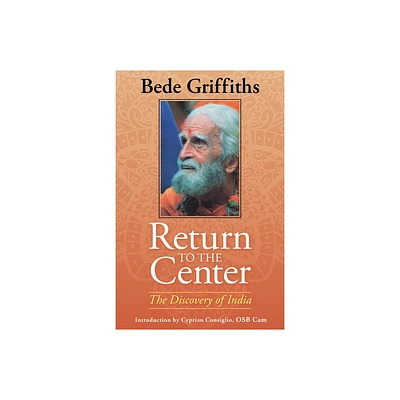Home
the Science of Rishis: Spiritual and Material Discoveries Ancient Sages India
Loading Inventory...
Barnes and Noble
the Science of Rishis: Spiritual and Material Discoveries Ancient Sages India
Current price: $19.95


Barnes and Noble
the Science of Rishis: Spiritual and Material Discoveries Ancient Sages India
Current price: $19.95
Loading Inventory...
Size: Paperback
*Product Information may vary - to confirm product availability, pricing, and additional information please contact Barnes and Noble
A complete introduction to Sanatana Dharma, the spiritual science of the Hindu sages
• Examines how many core concepts of Hinduism, including Brahman, Atman, bhakti, karma, and reincarnation, relate to modern science
• Explores the scientific discoveries of the rishis, ancient Vedic sages, and how they have only recently been rediscovered by Western scientists
• Reveals the concepts of quantum physics hidden within the Vedas, the Bhagavad Gita, the Upanishads, and the Puranas
Called “the scientists of Hinduism,” the rishis of ancient India were the scribes of the Vedas. They developed the spiritual science of Hinduism, Sanatana Dharma, as their way of ensuring the constant renewal and progress of India’s spiritual tradition and culture. Sanatana Dharma permeates every aspect of Hindu culture, from religion to the arts to the sciences. Woven within its Vedic texts lie all of the essential concepts of quantum physics and other modern scientific discoveries.
Providing a complete introduction to the science of Sanatana Dharma, Vanamali reveals how the core concepts of Hinduism, including Brahman, Atman, bhakti, karma, and reincarnation, relate to modern science and how the scientific discoveries of the ancient rishis have been recently rediscovered by the West. She examines the scientific principles within the classic stories and texts of India, including the Vedas, the Bhagavad Gita, the Upanishads, and the Puranas. Within the teachings of the ancient Puranic sages and saints such as Valmiki and Vyasa and legendary physicians and mathematician-philosophers such as Aryabhatta and Varahamihir, the author reveals great scientific truthsnot those believed by the ancient world, but truths still upheld by modern science, particularly quantum physics. She explores Desha and Kaala (Space and Time), Shankara and his philosophy of Advaita Vedanta, and the Hindu sciences of mathematics, astronomy, and Vedic astrology.
In illustrating the scientific basis of Hinduism and the discoveries of its sages, Vanamali provides a window into the depths of this most ancient spiritual way of life.
• Examines how many core concepts of Hinduism, including Brahman, Atman, bhakti, karma, and reincarnation, relate to modern science
• Explores the scientific discoveries of the rishis, ancient Vedic sages, and how they have only recently been rediscovered by Western scientists
• Reveals the concepts of quantum physics hidden within the Vedas, the Bhagavad Gita, the Upanishads, and the Puranas
Called “the scientists of Hinduism,” the rishis of ancient India were the scribes of the Vedas. They developed the spiritual science of Hinduism, Sanatana Dharma, as their way of ensuring the constant renewal and progress of India’s spiritual tradition and culture. Sanatana Dharma permeates every aspect of Hindu culture, from religion to the arts to the sciences. Woven within its Vedic texts lie all of the essential concepts of quantum physics and other modern scientific discoveries.
Providing a complete introduction to the science of Sanatana Dharma, Vanamali reveals how the core concepts of Hinduism, including Brahman, Atman, bhakti, karma, and reincarnation, relate to modern science and how the scientific discoveries of the ancient rishis have been recently rediscovered by the West. She examines the scientific principles within the classic stories and texts of India, including the Vedas, the Bhagavad Gita, the Upanishads, and the Puranas. Within the teachings of the ancient Puranic sages and saints such as Valmiki and Vyasa and legendary physicians and mathematician-philosophers such as Aryabhatta and Varahamihir, the author reveals great scientific truthsnot those believed by the ancient world, but truths still upheld by modern science, particularly quantum physics. She explores Desha and Kaala (Space and Time), Shankara and his philosophy of Advaita Vedanta, and the Hindu sciences of mathematics, astronomy, and Vedic astrology.
In illustrating the scientific basis of Hinduism and the discoveries of its sages, Vanamali provides a window into the depths of this most ancient spiritual way of life.


















